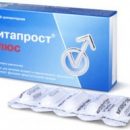What is Addison's disease? What are the causes and manifestations of Addison's disease? How the diagnosis and treatment of Addison's disease is carried out? Answers to these questions you will find in the article.
Content
Causes and manifestations of Addison's disease
Addison's disease (bronze disease, chronic lack of adrenal cortex) is the painful state of adrenal cortex, which occurs when they are bilateral lesion, leading to a decrease in (or complete cessation) of the secretion of hormones adrenal glands.
Addison's disease occurs with the defeat of more than 90% of adrenal fabrics. In the overwhelming majority of cases, the cause of the disease - an autoimmune process (attack of its own immune system), followed by a tuberculosis in frequency. As a syndrome, chronic lack of adrenal cortex is present with many diseases inherited diseases.
Causes of Addison's disease:
- An autoimmune lesion of adrenal cortex (attack by its own immune system)
- Tuberculosis adrenal glands.
- removal of adrenal glands
- Consequences of long-term therapy hormones
- fungal diseases (histoplasmosis, blastomycosis, cocidioidomycosis)
- Sarcoidosis
- Hemorrhage in adrenal glands
- tumors
- amyloidosis
- Acquired Immunodeficiency Syndrome (AIDS)
- syphilis
- adrenoleykodistrophy.
Addison's disease is accompanied by an increase in the level of adrenocorticotropic hormone (ACTH), together with the alpha-melanocytimulatory hormone, due to the darkening of the skin and mucous membranes, is a distinctive feature of Addison's disease, and therefore also called bronze.
The secondary insufficiency of the adrenal cortex is due to the insufficiency of the brain brain - pituitary gland; Unlike primary, never accompanied by a skin darkening.
The manifestations of the ADION disease are made up of signs of insufficient hormone release by adrenal glands. The predominance of certain manifestations is determined by the duration of the disease.
 The darkening of the skin and mucous membranes (with primary failure) often for months or years is ahead of the remaining manifestations. Perhaps the simultaneous presence of vitiligo due to autoimmune destruction of melanocytes - cells responsible for skin color.
The darkening of the skin and mucous membranes (with primary failure) often for months or years is ahead of the remaining manifestations. Perhaps the simultaneous presence of vitiligo due to autoimmune destruction of melanocytes - cells responsible for skin color.
- Pronounced weakness (primarily muscular), fatigue, decrease in body weight, poor appetite.
- Reduce blood pressure, which is accompanied by dizziness. Also in connection with reduced arterial pressure, patients note bad tolerability of cold.
- Signs of lesions of the gastrointestinal tract: nausea, vomiting, episodic diarrhea.
- Mental disorders (depression, psychosis) are possible.
- Strengthening taste, olfactory, hearing sensitivity; Perhaps the appearance of an insurmountable desire of salty food.
Adrenal (adrenal) crises: they are based on a sudden shortage of adrenal hormones due to improving the need for them or a sudden decrease in their development against the background of already existing chronic adrenal insufficiency.
Causes of adrenal crisis:
- Stress: acute infectious disease, injury, operational intervention, emotional overvoltage and other stressful effects; Adrenal crises in these situations provokes the lack of an adequate increase in doses of hormonal replacement therapy.
- Bilateral hemorrhage in adrenal glands.
- Bilateral embolism of adrenal arteries or thrombosis of adrenal veins (for example, when conducting x-ray-contrast studies).
- Removal of adrenal glands without adequate replacement therapy.
Manifestations of adrenal crisis: decrease in blood pressure, abdominal pain, vomiting and violations of consciousness.
Diagnosis and treatment of Addison's disease
The diagnosis of Addison's disease is conducted by an endocrinologist and reduces the detection of insufficient functionality of adrenal cortex (increasing the synthesis of cortisol hormone in response to stimulating influences).
Treatment of Addison's disease:
- Diet with Addison's Disease: A sufficient amount of proteins, fats, carbohydrates and vitamins, especially with and in (Recommend the broth of rosehip, black currants, beer yeast). Celebration salt consumes in increased quantities (20 g / day). The diet reduces the content of potatoes, peas, beans, beans, dried fruits, coffee, cocoa, chocolate, nuts, mushrooms. Vegetables, meat, fish must be used in boiled form. FUNNER MODE FROM, before bedtime, recommended a light dinner (milk glass).
- Treatment of Addison's disease - replacement therapy hormones of adrenal glands. Used hydrocortisone and flockortisis. Hydrocortisone of 10 mg in the morning and 5 mg inside daily after lunch (adults up to 20-30 mg / day). Fludrocortisus of 0.1-0.2 mg inside 1 time per day. With an increase in blood pressure, its dose should be reduced. With acute disease (for example, a cold) or after a minor injury, the dose of hormones double up to improving well-being. With operational treatment before and (if necessary) after surgery, the dose of hormones is corrected. With liver diseases, as well as elderly patients, the dose of drugs should be reduced.
- Treatment of adrenal crisis: Showing urgent hospitalization. Intravenously introduced 0.9% sodium chloride solution until determining dehydration, hydrocortisone. Clinical improvement (estimated primarily on the restoration of blood pressure) usually occurs 4-6 hours after intravenous therapy.
- With increasing temperature (against the background of normal blood pressure), antipyretic agents are prescribed, for example paracetamol.
- In surgical interventions it is necessary to correlate the dose of steroid hormones.
- Infectious diseases should be avoided.
With adequate therapy, Addison's disease forecast is favorable. Life expectancy is close to normal.









